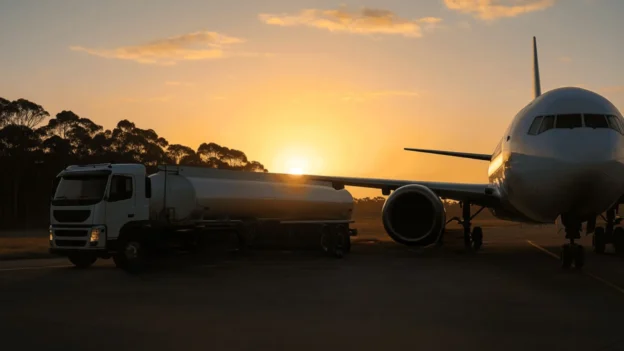HAMR Energy has unveiled plans to build Australia’s first large-scale SAF methanol-to-fuel plant, among the first such initiatives in the Asia-Pacific region outside China.
Methanol and PBS plant projection
The project’s objective is based on the capacity to convert 300,000 tons of low-carbon methanol into approximately 125 million liters of PBS per year. This volume would cover up to 3.5 million passenger journeys between Sydney and Melbourne. The feedstock will come from forestry residues and hydrogen produced at the company’s own Portland Renewable Fuels facility.
This strategy responds to the global drive to develop low carbon liquid fuels(LCLF) in the face of growing pressure to decarbonize intensive sectors such as aviation. Methanol, due to its flexibility and availability, represents a scalable and viable solution in the short term.
HAMR Energy’ s feasibility study identified South Australia and Victoria as ideal locations. The choice was based on factors such as access to renewable energy, logistical conditions and proximity to key markets.
HAMR Energy is committed to a vertical integration model that spans from biomass sourcing to commercial supply agreements. This configuration allows lower production costs, which represents a significant advantage in a market where demand for PBS is soaring but supply is still limited.
This project contemplates a total investment estimated at between 700 and 800 million Australian dollars. It also envisages the creation of more than 50 permanent jobs and several hundred during the construction phase. The company is currently closing its Series A financing round, with significant interest from strategic investors.
The proposal comes at a time when international regulations are beginning to recognize methanol as an alternative to methanol as a valid feedstock for producing producing PBS. This regulatory framework favors initiatives such as HAMR Energy’s, which could position Australia as a global benchmark in sustainable aviation solutions.
With the right policies, Australia has the opportunity to build a world-class LCLF industry, creating regional jobs, strengthening fuel security and taking advantage of abundant renewable energy and biomass resources.
This feasibility study of methanol conversion to jet fuel demonstrates our ability to implement competitive and bankable projects that help struggling industries, such as aviation, to decarbonize, while attracting significant investment and improving national fuel security.
David Stribley, co-founder of HAMR Energy.
Follow us on social networks and don’t miss any of our publications!
YouTube LinkedIn Facebook Instagram X (Twitter) TikTok
Source and photo: HAMR

